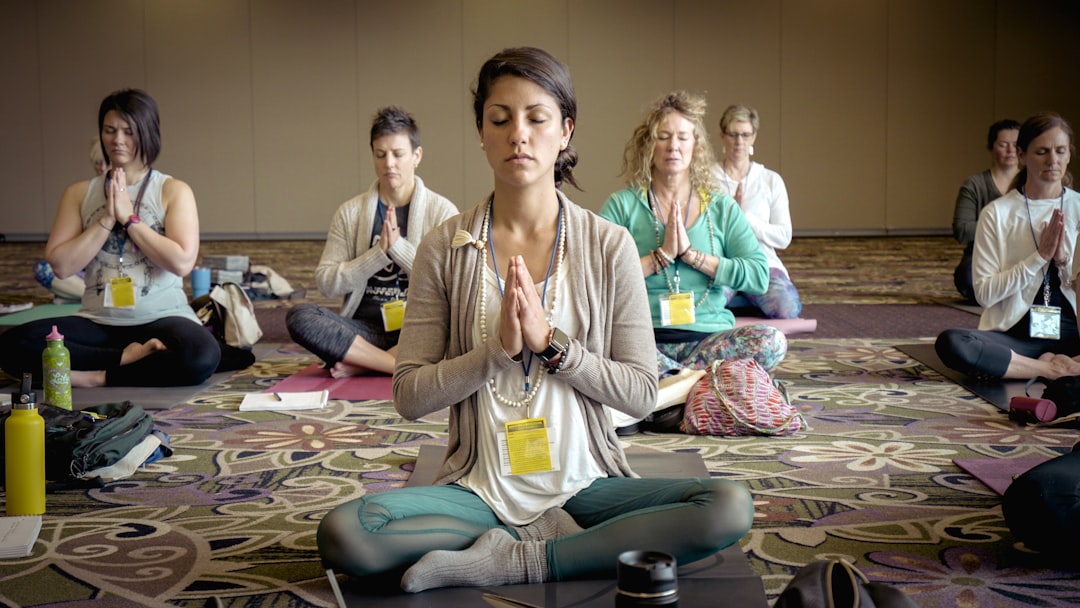Creating habits for a happier, healthier life can be beneficial for overall wellbeing. Having a positive outlook, being physically active, and eating nutritious food are all important pieces to the puzzle, but it is important to remember that the journey to health and happiness is personal and individual. By taking into account personal values, interests, and needs, one can create a lifestyle that works best for them.
The importance of habits in our lives
Habits are an essential part of our lives, providing structure and routine in order to bring about positive change. In particular, developing habits that lead to a happier, healthier life can be invaluable. When done correctly, these habits can help individuals achieve their desired goals, become more productive and find balance within their lives. As such, it is important to recognize the power of habits and how they can influence our lives for the better.
Overview of the 10 simple habits to be discussed
This article will provide an overview of simple habits that can be adopted to lead a happier and healthier life. These habits range from physical to mental and include exercising regularly, eating a balanced diet, getting plenty of sleep, taking time for yourself, and staying connected with friends and family. In addition to these basic habits, some other tips for improving your wellbeing are reducing stress levels, establishing good coping skills, and making time for activities that bring joy and satisfaction. By following these tips, you can create the foundation for a happier and healthier life.
Habit 1: Practice Gratitude
Practicing gratitude is one of the simplest habits that can lead to a happier, healthier life. Studies have found that expressing gratitude can have a far-reaching impact on our physical, psychological, and social wellbeing. By taking a few moments to appreciate the people and things around us, we can cultivate an attitude of thankfulness and open our minds to the beauty of life’s gifts. Gratitude can also help us gain perspective on our struggles, cultivate empathy for others, and ultimately lead to a more satisfied and fulfilling life.
The power of gratitude
Recent research has shown that one of the most powerful habits for a happier, healthier life is practicing gratitude. Studies have found that when people take time to appreciate and express gratitude for the good things in their lives, it can lead to increased levels of happiness and well-being. Gratitude can also help improve relationships, reduce stress levels, and even increase self-esteem and physical health. It is important to remember that gratitude is not just about being thankful for the big things, but also being grateful for small moments in everyday life.
Ways to incorporate gratitude into daily life
Incorporating gratitude into our daily lives can have an immense impact on our overall health and happiness. Research has shown that being thankful for the people, places and experiences in our lives can lead to a greater sense of satisfaction and well-being. Additionally, expressing gratitude has been linked to a number of other positive outcomes, such as improved mental health, better physical health, increased resilience and enhanced relationships. Taking the time to be mindful of the things we are grateful for each day can make a big difference in our happiness and overall wellbeing.
1: Take time to write down three things you are grateful for each day.
2: Express gratitude to someone who has done something nice for you.
3: Acknowledge the small acts of kindness from others throughout the day.
4: Smile and thank people throughout the day, even if it’s just for holding the door open for you.
5: Practice mindful meditation and focus on your blessings.
6: Send a thank you note or call someone just to express your gratitude for them.
7: Make it a goal to find something positive in every situation.
Potential benefits of a gratitude practice
The practice of gratitude can have a powerful impact on one’s overall wellbeing. Studies have shown that expressing gratitude can lead to increased feelings of joy and satisfaction, as well as improved physical and emotional health. Individuals who practice gratitude may also experience improved sleep, increased self-esteem, and better relationships with others. Furthermore, regularly taking time to appreciate the good things in life has been found to boost mental strength and resilience. A gratitude practice can be as simple as writing down three things you’re thankful for each day or sending a thank-you note to someone who has made a difference in your life. Incorporating this habit into your daily routine can help you cultivate a greater sense of happiness and wellbeing.
1: Increased happiness and positive emotions
2: Improved sleep quality
3: Increased resilience in tough times
4: Strengthened relationships with others
5: Improved overall physical health
6: Heightened sense of connection to the world
7: Deeper appreciation for life’s gifts.
Habit 2: Exercise Regularly
Exercising regularly is one of the best habits you can form to lead a happier and healthier life. Not only does it improve physical fitness, but studies have also shown that regular physical activity can reduce stress, boost mental health, and improve overall mood. Taking time each day to exercise can help you get the most out of life and reach your full potential.
The importance of physical activity
Physical activity is an integral part of leading a happier, healthier life. Regular exercise helps to boost energy levels, reduce stress, and improve overall wellbeing. Additionally, engaging in physical activity can help to keep the body fit and strong, improve heart health, regulate sleep patterns, and can even help to reduce the risk of serious health conditions such as obesity, diabetes, and heart disease. By making physical activity a priority as part of a healthy lifestyle, individuals can reap the many benefits that it provides.
Simple ways to incorporate exercise into daily life
Incorporating exercise into daily life doesn’t have to be intimidating or time-consuming. There are lots of small ways to incorporate more physical activity into your routine. Taking the stairs instead of the elevator, taking a walk during your lunch break, or doing a few simple exercises at home can all help make a difference. Even if you can only dedicate ten minutes of your day to exercise, it can be enough to make a big impact on your overall health and happiness.
Potential health benefits of regular exercise
Regular exercise has the potential to bring many health benefits such as improved cardiovascular and respiratory health, increased muscle strength and better overall physical fitness. In addition, physical activity can also improve mental health, reduce stress and even reduce the risk of certain diseases. With regular exercise, individuals can enjoy a healthier and happier life as it helps to maintain a healthy weight, reduce anxiety and depression levels, and improve sleep quality.
Habit 3: Get Adequate Sleep
Sleep is one of the most important habits for a healthier, happier life. Getting an adequate amount of sleep is key for cognitive performance and overall well-being. Research has shown that adults need 7-9 hours of sleep per night, while teens should get 8-10 and children should get 9-11 hours. Additionally, creating a calming nighttime routine to wind down can help your body to get the sleep it needs. Establishing consistent bedtimes and wake times can also help to ensure that you are getting the sleep you need. By prioritizing adequate sleep, you can be on your way to a healthier, happier life.
The importance of sleep
Getting a good night’s sleep is essential for a happier and healthier life. Studies have shown that people who get enough sleep report higher levels of happiness, better concentration, and improved physical health. Not only can it help reduce stress and anxiety, but it can also help strengthen the immune system and improve memory. In order to get a good night’s sleep, it is important to establish a consistent sleep schedule and avoid screens before bedtime. Additionally, making sure the bedroom is dark, cool, and free of distractions can help improve the quality of sleep. With the right habits in place, getting enough sleep on a regular basis can make all the difference in achieving a happier and healthier life.
Simple tips for improving sleep hygiene
Improving sleep hygiene is an important factor in leading a happier and healthier life. Small changes can make a big difference, such as avoiding caffeine late in the day, getting some sunlight during the day, creating a relaxing pre-bedtime routine, and keeping devices out of the bedroom. Additionally, consider incorporating regular exercise into your daily routine and avoiding large meals before bed. With these simple tips, you can help to ensure quality rest and better overall health.
1: Set a consistent sleep schedule by going to bed and waking up at the same time every day.
2: Avoid caffeine, nicotine, and alcohol in the late afternoon and evening.
3: Exercise regularly but avoid strenuous activity close to bedtime.
4: Avoid large meals and beverages late at night.
5: Relax before bed by taking a warm bath, listening to calming music, or reading a book.
6: Create a comfortable sleeping environment with adequate ventilation, comfortable temperature, and minimal noise and light.
7: Limit daytime naps to less than 30 minutes.
8: Try not to watch TV or use electronic devices in the bedroom.
Potential benefits of getting enough sleep
Getting enough sleep is essential for living a happier, healthier life. Studies have shown that getting an adequate amount of sleep can have tremendous potential benefits, including improved cognitive function, better concentration, and a stronger immune system. Additionally, research has found that consistently getting enough sleep can help reduce the risk of developing depression, diabetes, heart disease and certain types of cancer. It is recommended that adults get at least seven to nine hours of sleep each night, and teenagers should get between eight and 10 hours.
1: Improved concentration and productivity
2: Reduced stress and anxiety levels
3: Better memory and cognitive functioning
4: Improved immune system functioning
5: Reduced risk of heart disease and stroke
6: Improved mood and outlook on life
7: Increased energy levels throughout the day
8: Improved sleep quality and quantity
9: Increased weight loss
10: Optimal health and well-being.
Habit 4: Eat a Healthy Diet
Eating a healthy diet is essential for a happier and healthier life. Eating nutritious meals with a variety of fruits, vegetables, grains, and proteins helps to ensure that the body is receiving the nutrients it needs to stay healthy and energized. Aiming to make half of the plate fruits and vegetables with a balance of carbohydrates and proteins can help to create meals that are both delicious and nutritious. Eating healthy doesn’t have to be boring – adding herbs and spices or trying new recipes can make it enjoyable!
The connection between diet and health
A healthy diet is essential for a happy, healthy life. Eating a balanced diet full of wholesome foods such as fruits and vegetables, lean proteins, and complex carbohydrates can provide the body with essential nutrients to help it function at its best. Furthermore, studies have shown that eating a nutritious diet can help reduce the risk of certain diseases and illnesses. Eating certain foods can also help improve mental health and increase energy levels, allowing individuals to live a fuller life. Ultimately, developing healthy eating habits is imperative for achieving a happier, healthier life.
Simple tips for incorporating healthy eating habits
Incorporating healthy eating habits is an essential part of leading a happier, healthier life. Eating nutritious foods provides the body with the energy and nutrients necessary for proper functioning, as well as helping to maintain a healthy weight. Additionally, making conscious decisions about what to eat can lead to improved mental wellbeing. A balanced diet consisting of whole grains, lean proteins, fruits, vegetables and healthy fats can help individuals feel their best. Taking the time to plan meals and snacks in advance can also be beneficial, as it allows for better portion control and fewer impulse purchases of unhealthy items.
1: Incorporate more fruits and vegetables into your diet.
2: Choose whole grain breads, pastas, and cereals.
3: Select lean proteins like poultry and fish.
4: Limit saturated fats found in foods such as red meat, butter, and cream.
5: Cut down on processed sugars present in candy, soda, and desserts.
6: Drink plenty of water throughout the day.
7: Avoid eating late at night or skipping meals.
Potential health benefits of a balanced diet
Eating a balanced diet is an important key to living a healthier and happier life. A balanced diet includes plenty of fruits, vegetables, whole grains, dairy products, and protein sources. Following a balanced diet can provide many potential health benefits such as reduced risk of obesity, improved digestion, increased energy levels, and better overall physical health. Eating well can also lead to greater mental clarity, improved moods and emotions, and better sleep patterns. It is important to remember to consult with a healthcare professional before making any major changes to your diet.
1: Improved digestion
2: Lower risk of chronic diseases
3: Increased energy levels
4: Stronger immune system
5: Healthy weight maintenance
6: Improved concentration and focus
7: Reduced risk of developing certain cancers
8: Reduced risk of heart disease
9: Reduced risk of stroke
10: Optimal health and well-being.
Habit 5: Limit Screen Time
Limiting screen time is an essential habit for a happier, healthier life. Too much time spent on technology can lead to feeling overwhelmed and stressed out. Instead, focus on activities that bring joy and relaxation such as reading, writing, spending time outdoors or engaging in creative hobbies. It’s also important to establish realistic boundaries for yourself and stick to them. Even if it’s just a few minutes each day, carving out some time away from screens can make a big difference in your overall health and well-being.
The potential negative effects of excessive screen time
Excessive screen time can have a negative effect on an individual’s overall health and well-being. Studies have shown that spending too much time in front of a computer or other electronic device can lead to increased stress, anxiety, and depression, as well as physical health issues such as obesity and poor sleep patterns. Additionally, prolonged exposure to screens can lead to reduced social engagement, as well as difficulty concentrating and retaining information. It is important to find a balance between technology usage and other activities that contribute to a healthier and happier lifestyle.
Simple tips for reducing screen time
In an increasingly digital world, reducing the amount of time spent on screens is an important habit to include in a healthier and happier life. Limiting the number of hours spent on laptops, phones, and tablets can help to reduce stress levels, improve quality of sleep, and help maintain better physical health. Finding ways to stay away from screens by creating activities such as reading books, taking walks, or even gardening can be a great way to take a break from the digital world and make time for yourself.
1: Set screen time limits for yourself and stick to them.
2: Turn off all notifications for apps you don’t need to be using.
3: Find other activities to occupy your time, like reading, exercising, or spending time with friends and family.
4: Make a conscious effort to put your phone away during meals or when you’re out with friends.
5: Leave your phone in another room when you’re doing tasks that don’t require it.
6: Unsubscribe from emails that are just distractions.
7: Delete social media apps that you don’t need and rely on desktop versions instead.
Potential benefits of limiting screen time
Limiting screen time has the potential to drastically improve mental and physical wellbeing. Research has indicated that decreasing the amount of time spent on devices such as smartphones and tablets can reduce stress levels, improve sleep quality, and increase productivity. Additionally, limiting screen time can result in increased physical activity as well as more meaningful interactions with friends, family, and nature. Taking a break from our screens and implementing healthy habits can lead to a happier, healthier life.
1: Improved Sleep Quality
2: Increased Concentration
3: Enhanced Creativity
4: Improved Mental Health
5: Increased Physical Activity
6: Improved Social Interactions
7: Increased Productivity
8: Reduced Risk of Developing Depression
9: Reduced Risk of Chronic Disease
10: Optimal Health and Well-Being.
Habit 6: Meditate or Practice Mindfulness
Meditation and mindfulness practices have been linked to improved physical, mental, and emotional well-being. With regular practice, you can foster feelings of calmness, contentment, and clarity of thought. To get started, find a quiet space and focus on your breath for a few minutes each day. As your practice grows, you can incorporate guided meditations or explore more complex mindfulness techniques. With a little dedication and effort, you can enjoy the benefits of a happier and healthier life.
The benefits of mindfulness
Mindfulness is an increasingly popular practice, with a range of health and wellness benefits. Practicing mindfulness can help to reduce stress and anxiety, improve emotional regulation, and increase resilience in the face of life’s challenges. Additionally, many people report experiencing greater connection to their inner wisdom and insight, a deeper appreciation of the present moment, and more meaningful relationships with others. With regular practice, mindfulness can lead to a more balanced, joyful life.
Simple ways to incorporate mindfulness into daily life
Mindfulness is an important practice for achieving a happier and healthier life. While it may seem daunting at first, incorporating mindfulness into one’s daily life is easier than it seems. Mindfulness is the practice of being aware and present in the moment without judgement. It can be done in many ways such as through meditation, yoga, or even just taking a few minutes to observe the environment around you. Making mindfulness part of your daily routine can help to reduce stress and anxiety while also promoting a sense of wellbeing. Incorporating mindfulness into your life can be a great way to find balance and peace in our ever-changing world.
1: Take a few moments each day to pause, close your eyes, and take some slow deep breaths.
2: Focus on one task at a time and give it your full attention.
3: Take regular breaks throughout your day to stretch or go for a walk.
4: Notice the beauty around you and be present in the moment.
5: Practice gratitude by making a list of things you are thankful for each day.
6: Eat mindfully by savoring each bite and being aware of the taste, texture, and smell of your food.
7: Spend time in nature to connect with the world around you.
8: Try a contemplative practice like vipassana or zen meditation.
9: Connect with like-minded people through social media or meet-ups.
10: Enjoy the benefits of mindfulness and meditation on your own terms, in your own time, and in your own way.
Potential benefits of regular meditation or mindfulness practice
Research suggests that regular meditation or mindfulness practice can lead to a range of potential benefits, including reduced stress and anxiety, improved focus and concentration, increased self-awareness and mental clarity, and improved physical health. Additionally, meditation may help individuals to cultivate more positive outlooks on life, improve their relationships with others, and gain a greater sense of overall peace and contentment. With regular practice, these benefits can be experienced in both the short term and the long term.
1: Reduced Stress and Anxiety
2: Improved Memory and Concentration
3: Increased Emotional Well-being
4: Improved Self-Awareness and Acceptance
5: Increased Patience, Clarity, and Focus
6: Better Quality Sleep
7: Heightened Immunity and Reduced Pain
8: Greater Connections with Others.
Habit 7: Connect with Others
One of the best habits to cultivate for a healthier and happier life is connecting with others. Whether it be family, friends, or even making new connections, interacting with other people can have many benefits. Studies have shown that having meaningful relationships can reduce stress levels and improve overall mental health. Additionally, having meaningful relationships can lead to more opportunities for personal growth and development. Building a strong network of friends and acquaintances is an important part of living a fulfilling life.
The importance of social connection
Developing and maintaining social connections is an integral part of leading a happier and healthier life. Research has found that individuals with strong social relationships have lower levels of stress, a stronger immune system, better mental health, and an overall improved sense of wellbeing. Social connection can come in many forms, such as spending quality time with family and friends, joining a club or organization, or even simply engaging with others online. Regardless of how it is achieved, developing meaningful relationships is key to leading a fulfilling life.
Simple ways to connect with others and build meaningful relationships
In order to lead a happier, healthier life, it is important to build meaningful relationships with others. Connecting with family, friends, and even acquaintances can help to create a more positive outlook on life. Socializing with others can help to reduce stress, increase self-confidence, and provide a sense of belonging. Furthermore, engaging in meaningful conversations can also enhance cognitive abilities and help to keep the mind sharp. Having strong relationships with others is essential for overall wellbeing, so take the time to connect and build meaningful relationships.
1: Make time for face-to-face conversations
2: Participate in group activities
3: Ask questions and listen to others
4: Make an effort to get to know people
5: Offer help and support when needed
6: Reach out to reconnect with old friends
7: Show genuine interest in others’ lives
8: Express gratitude for the relationships you have
9: Take time to reflect on how your relationships have changed over time
10: Make a vow to stay connected with those you care about.
Potential benefits of strong social connections
Having strong social connections has been linked to numerous potential health benefits. Studies have suggested that having a strong network of friends and family can reduce stress and boost happiness. Additionally, having a robust social life can even help to improve physical health and reduce the risk of certain illnesses. Having a strong support system can also give people the confidence and motivation they need to make healthy lifestyle choices. Ultimately, having strong social connections can be an important factor in living a happier, healthier life.
1: Improved mental health and wellbeing
2: Enhanced physical health
3: Increased resilience to stress
4: Greater longevity and reduced risk of disease
5: Improved cognitive function and creativity.
6: Reduced levels of anxiety, depression, and loneliness.
7: Increased feelings of security and belonging.
8: Enhanced relationships with others.
9: Greater opportunities for personal growth and development.
10: A deeper sense of connectedness to others and the world around you.
Habit 8: Find Time for Hobbies and Interests
Making time for hobbies and interests can be a great way to improve your overall health and happiness. It can provide an outlet for stress, help you take a break from your daily routine, and give you something to look forward to. Participating in activities that bring you joy, such as painting, playing an instrument, or gardening, can provide a sense of accomplishment and help reduce stress levels. Incorporating hobbies into your daily life can also help you meet new people and learn new skills that can further enrich your life.
The importance of engaging in enjoyable activities
Engaging in enjoyable activities is an essential part of leading a happier and healthier life. Studies have shown that activities such as listening to music, spending time with family and friends, or pursuing a hobby can all help to reduce stress, increase energy, and improve overall well-being. Additionally, engaging in enjoyable activities can help to foster positive relationships, promote self-discovery, and provide moments of joy that can help to make life more meaningful.
Simple tips for finding time for hobbies and interests
Incorporating hobbies and interests into your daily life can be a great way to boost your overall wellbeing. Taking time to pursue activities that you find enjoyable and meaningful can help to reduce stress and anxiety, while also providing a sense of purpose and satisfaction. Finding the right balance between work, family, and leisure activities is key to leading a happier, healthier life.
1: Make a schedule and set aside specific time each day or week to pursue your hobbies.
2: Prioritize your hobbies and interests by seeing which ones you enjoy the most and make a list of activities that you can do when you have free time.
3: Take advantage of small pockets of time in between activities and tasks to pursue your hobbies.
4: Break down large projects into smaller tasks, so that you can work on them a little bit at a time.
5: Look for ways to combine useful activities with leisure activities, such as taking a walk while listening to an audiobook or watching TV while knitting.
6: Don’t be afraid to say “no” to commitments that don’t interest or involve you. Spending time with friends and family is important, but it’s also important to find time for yourself.
7: Embrace change and experimentation – try something new every once in a while!
8: Reward yourself for taking the time to pursue your hobbies and interests – this can be anything from a day off work to a new book or CD.
9: Be patient – pursuing enjoyable activities doesn’t happen overnight, but with some patience and effort, you can greatly improve your health and happiness.
10: Remember, its okay to take a break! Even if you only get a few hours of rest each night, its better than nothing.
Potential benefits of engaging in hobbies and interests
Engaging in hobbies and interests can have a profoundly positive effect on overall wellbeing. Studies have shown that people who are actively engaged in activities they enjoy, such as drawing, playing music, or gardening, experience elevated levels of happiness and reduced stress. Participating in hobbies can also boost creativity and productivity, as well as increase physical activity levels. Additionally, engaging in hobbies can help to increase self-confidence, create a greater sense of purpose, and provide a means for social engagement. By taking the time to invest in activities that bring joy and fulfillment, individuals can cultivate healthier habits and lead a happier life.
1: Improved mental health and wellbeing
2: Increased creativity and problem-solving skills
3: Enhanced cognitive function and memory
4: Increased social skills and relationships with others
5: A sense of accomplishment and satisfaction from completing a task or project
6: Improved physical health from activities such as gardening or sports
7: Increased knowledge in a particular area or topic
8: Increased sense of self-efficacy and ability to take on challenges
9: Sense of community and connection with others.
10: Having a hobby can be a great way to relieve boredom and stress, as well as provide a sense of purpose and satisfaction in life.
Habit 9: Practice Self-Care
Practicing self-care is a key habit for leading a happier and healthier life. Self-care can take many forms, such as taking time to relax, getting enough sleep, eating nutritious meals, and exercising regularly. These activities help to reduce stress levels and improve overall wellbeing. Additionally, it is important to ensure that you are taking time to do things that you enjoy and make you feel good. Establishing a routine of self-care can help you to lead a more balanced lifestyle and develop a healthier relationship with yourself.
The importance of self-care
Self-care is an essential tool for achieving a happier, healthier life. Building habits like regular exercise, proper nutrition, adequate sleep and relaxation techniques can help reduce stress, improve overall wellbeing and give us the energy to take on life’s challenges. Making the effort to develop and stick with healthy habits can result in improved physical and mental health, as well as improved relationships with family and friends. Make sure to take the time to do something for yourself each day – it will be worth it!
Simple ways to incorporate self-care into daily life
Incorporating self-care into your daily life is essential for both mental and physical wellbeing. From meditation and journaling, to physical exercise and healthy eating, there are many simple habits that can help to foster a happier and healthier lifestyle. Making these habits part of your daily routine can help to reduce stress, increase energy levels, and improve overall quality of life.
1: Get enough sleep each night.
2: Prioritize exercise or other physical activity.
3: Take time to enjoy a hobby.
4: Practice mindful meditation or yoga.
5: Eat healthy, nutritious meals.
6: Take breaks throughout the day to relax and recharge.
7: Connect with friends and family for support and socialization.
8: Make time for yourself to do something you enjoy, such as reading or listening to music.
9: Set boundaries and limits on how much stress you can take.
10: Remember, self-care is an essential part of leading a happier, healthier life. Take the time to do things for yourself that make you feel good and help reduce stress levels.
Potential benefits of a self-care practice
Practicing self-care can be beneficial in many ways. Research suggests that taking the time to care for yourself can help improve physical, mental, and emotional wellbeing. It can reduce stress, boost energy levels, and help to create a greater sense of overall happiness and contentment. A self-care practice may also lead to improved concentration and productivity, better sleep quality, and a stronger immune system. By carving out time to prioritize your own health, you can experience the potential benefits of a self-care practice and lead a happier, healthier life.
1: Improved mental and emotional wellbeing
2: Increased self-confidence and self-esteem
3: Reduced stress levels
4: Improved physical health and energy levels
5: Enhanced creativity and productivity
6: Improved relationships with others
7: Better sleep quality
8: Increased ability to manage difficult emotions
9: Increased sense of connectedness to others and the world
10: A greater sense of purpose and fulfillment in life.
Habit 10: Set and Work Towards Goals
Setting and working towards goals can help us to become healthier and happier in our lives. It is important to have a plan and break it down into achievable steps so that we can track our progress. Identifying what we want to accomplish and making a plan of action can help us stay motivated along the way while providing us with a sense of purpose, accomplishment, and satisfaction. Working towards goals can also provide us with an opportunity to learn new skills, challenge ourselves, and realize our full potential.
The importance of setting goals
Setting goals is an important part of leading a happier and healthier life. Goals provide a sense of purpose and direction, help to motivate and inspire you, and create a sense of accomplishment when met. Having measurable goals also helps you to track your progress, which can boost your self-confidence and give you a feeling of empowerment. Goals can be set for any aspect of life, from physical and mental health to career aspirations and relationships. Setting goals can give you the focus and determination to make positive changes in your life.
Simple tips for setting and achieving goals
Setting and achieving goals is an important part of living a happier and healthier life. Doing so helps to create a sense of direction and purpose, as well as providing a sense of accomplishment when goals are met. When setting goals, it’s important to be realistic and to break them down into smaller steps, as this will make them easier to achieve. Additionally, it’s important to celebrate the successes along the way and be kind to yourself if you don’t reach the goal. With patience and dedication, setting and achieving goals can be an incredibly rewarding part of living a happier and healthier life.
1. Set SMART goals (Specific, Measurable, Achievable, Realistic, and Timely).
2. Break down your goals into smaller steps.
3. Set deadlines for each step.
4. Track and review your progress regularly.
5. Make adjustments as needed to stay on track.
6. Ask for help when you need it.
7. Celebrate your successes!
Potential benefits of goal-setting and goal attainment
Setting and achieving goals can provide a sense of accomplishment and fulfillment that can help lead to long-term happiness and health. When setting goals, consider those that are attainable and ones that align with your personal values. Taking the time to make a plan for how to achieve the goal can be just as important as setting the goal itself. Achieving goals can also lead to an increase in self-confidence, which can have a positive effect on mental health. In addition, being able to stay motivated and focused on a goal can lead to improved time management skills, which may help decrease stress levels in the long run.
1: Increased motivation and productivity
2: Improved self-confidence and self-esteem
3: Improved focus and concentration
4: Increased sense of accomplishment
5: Improved ability to manage stress
6: More successful career advancement
7: Better problem-solving skills
8: Increased sense of connectedness to others and the world
9: Better sleep quality
10: A greater sense of purpose and fulfillment in life.
Conclusion
Setting and achieving goals is an important part of leading a happier and healthier life. Goals provide a sense of purpose and direction, help to motivate and inspire you, and create a sense of accomplishment when met. Having measurable goals also helps you to track your progress, which can boost your self-confidence and give you a feeling of empowerment. Setting and achieving goals can lead to increased motivation, improved self-confidence, improved focus and concentration, and improved problem-solving skills. These habits have the potential to lead to a greater sense of purpose and fulfillment in life, better sleep quality, and a stronger sense of connectedness to others and the world. Incorporating goal-setting and goal-attainment into our daily lives can help us to live happier and healthier lives.












